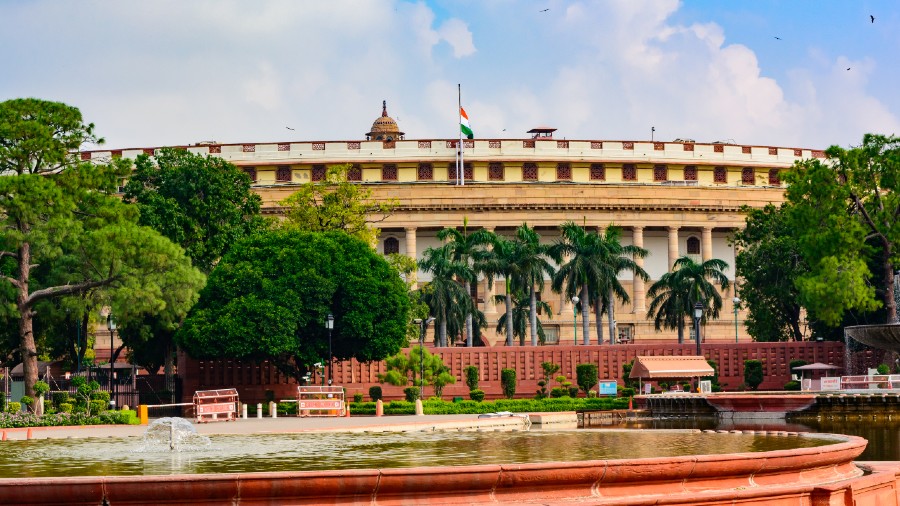Parliament passed the Juvenile Justice (Care and Protection of Children) Amendment Bill, which seeks to increase the role of district magistrates and additional district magistrates in matters concerning child care and adoption.
The Bill was passed by Lok Sabha in March 2021.
Women and Child Development Minister Smriti Irani moved the Bill in Rajya Sabha on Wednesday and it was passed amid a ruckus as the Opposition parties kept up their protests over Pegasus snooping row, farm laws and price rise.
The Juvenile Justice (Care and Protection of Children) Amendment Bill, 2021, which seeks to amend the Juvenile Justice Act, 2015, proposes to increase the role of district magistrates and additional district magistrates in matters concerning child care and adoption, she said.
"The children of our country deserve a united house to support the amendments proposed. The amendments empower the district magistrates, enhance CWC (child welfare committee) and enhance accountability. Hence I beseech that this House irrespective of its political differences stand together in service of our children," Irani said amid protests.
According to the amendments, background and educational qualification checks will be included in the process of selection of a member of a child welfare committee.
"If an individual has a record of violation of human rights, that individual can never be appointed as a member of the child welfare committee. If an individual is convicted of an offence involving moral turpitude and has not been granted pardon, that individual cannot serve as a member of the child welfare committee. If an individual has ever abused a child, employed a child labour or indulged in immoral acts, that individual cannot serve in the child welfare committee," Irani said.
"To ensure that there is absolutely no conflict of interest, those individuals who run child care institutions or other NGOs that profit from the government, who are from the management part of child care institutions, they cannot be a part of child welfare committees," she said.
The Bill also seeks to categorise offences wherein the maximum sentence is more than seven years' imprisonment but no minimum sentence or a minimum sentence of less than seven years has been provided as "serious offences" under the Juvenile Justice Act, and to remove difficulties in interpretation of the Act.
"Serious offences" include those for which the punishment under the Indian Penal Code or any other law for the time being is imprisonment between three and seven years.
The Bill intends to ensure that the district magistrate is suitably placed to ensure effective coordination among the stakeholders for facilitation of necessary services for children's rehabilitation or re-integration.
By further empowering district magistrates to deal with child protection and adoption processes, it aims to facilitate a coordinated and effective response of the administration to various issues pertaining to children, including adoption, the Bill said.
On the child welfare committee, the Bill said no person shall be appointed as a member unless he or she has been actively involved in health, education or welfare activities pertaining to children for at least seven years or is a practising professional with a degree in child psychology or psychiatry or law or social work or sociology or human development.
The Bill further proposes that the appointment of any member of the committee shall be terminated by the state government, after making an inquiry, if they fail to attend the proceedings of the committee consecutively for three months without any valid reason or if they fail to attend less than three-fourths of the sittings in a year.
The Bill makes the district magistrate the grievance redressal authority for the child welfare committee, and anyone connected with a child may file a petition before the official, who shall consider and pass appropriate orders.










